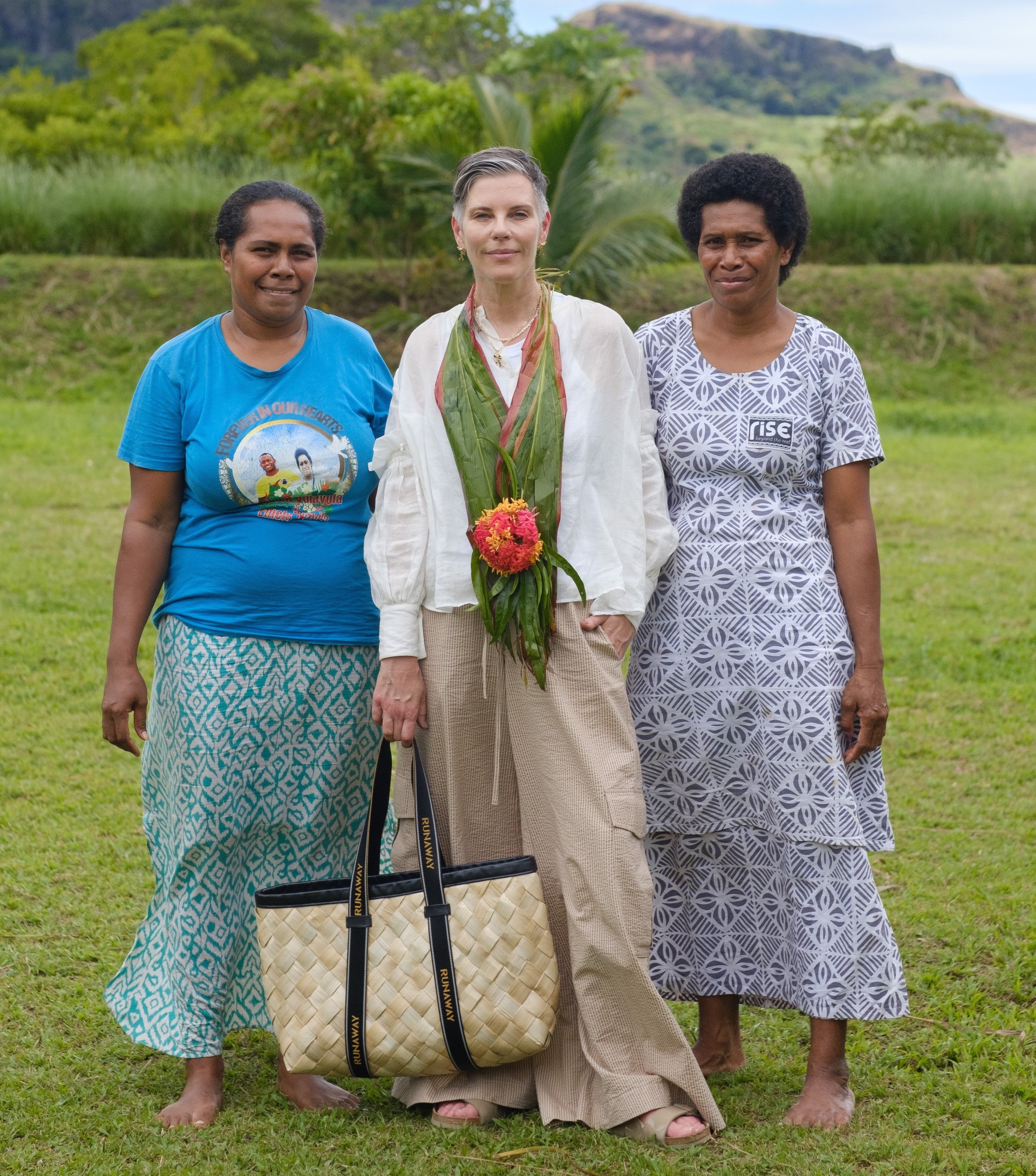

‘‘I’d seen Rise Beyond the Reef products on a couple of trips to Fiji and really liked what they did - the Marama and Tagane dolls and the handsewn Koro Print turtles especially put a smile on my face,’’ Walker says.
‘‘After doing a little research we thought they’d be the perfect partner for a great summer bag.’’
In the design stages they played around with the shapes RBTR had already developed and then added their own thoughts and details to them to create elevated beach/everyday bags.
There are many steps involved before the bags are even woven, RBTR co-founder and director Janet Lotawa says.
‘‘The planting of pandanus, harvesting, de-thorning, blanching the leaf bundles, drying, softening, coiling and splitting and softening again prior to weaving. There are no instruction manuals, just knowledge passed down from intergenerational time on the mat together.’’

Kioa, a remote island where getting in and out is both limited and costly, is home to artisans supported by Rise Beyond the Reef, working across generations to preserve and promote traditional skills.
The basket totes in particular are the result of a meticulous process. Sasa (coconut palm spine) is harvested, split into small sticks, bundled and wrapped with voivoi leaf, then woven into the final form.
The handwoven pieces are then sent to Sabeto Valley, where the RBTR studio collection team manages the leather finishing and final assembly, providing valuable job training to youth from partner rural communities, before the completed bags are shipped to New Zealand.

Lotawa says working with Karen Walker has been a powerful collaboration.
‘‘Together, we’re not only bringing beautiful products to market but also driving real change in rural communities, empowering women and preserving traditional skills.
‘‘Women in the coastal region of Ra Province are traditionally fisherfolk, with some small-scale sales of fish and coconuts for cash, sold to intermediaries.’’
Transportation costs for these communities to reach central markets to sell their goods are high.
‘‘Boat fuel costs are often too high to reach deeper waters for larger, more valuable fish, so many indigenous communities live a largely subsistence lifestyle in this region.’’
For the women RBTR partners with, aside from their earnings with it, some receive social welfare checks. The income earned through weaving plays a vital role in meeting their needs and families, Lotawa says.
‘‘We began work in this region following Cyclone Winston in 2016 as an economic recovery programme to help communities rebuild. With the realities of living in remote Pacific Island regions, we’re basically in a constant cycle of preparation and recovery.’’
The work is long-term and steady market access is essential.
‘‘The Karen Walker order directly supports this.’’

‘‘It’s projects like these that I love - getting to hang out, share stories and witness the incredible spirit of collaboration.’’
Lotawa says results from the Karen Walker collaboration are already becoming visible in the communities.
‘‘As time progresses, so does the skill level of women, and we continue to grow the number of women we are working with in this remote coastal region of Ra Province. Continued market access is critical to encouraging this growth, and we’re grateful to the Karen Walker team for playing a part in that.’’
Lotawa says Verevere, formerly focused on fishing, now relies on weaving for RBTR as a primary income source.
‘‘Pooling their resources from this income, the artisans are currently working together to fund and build a secondary school to ensure education is more accessible for their district.’’
Walker, who also has long-term partnerships with the SPCA, Breast Cancer Cure, Dove Hospice and others, says this collaboration is a unique opportunity to celebrate the craftsmanship of Fijian artisans while bringing their work to a global market.
‘‘Fiji holds a deep connection for me and my family, and I’m proud to continue working with Rise Beyond the Reef to create something that reflects both the beauty and resilience of its people.’’











